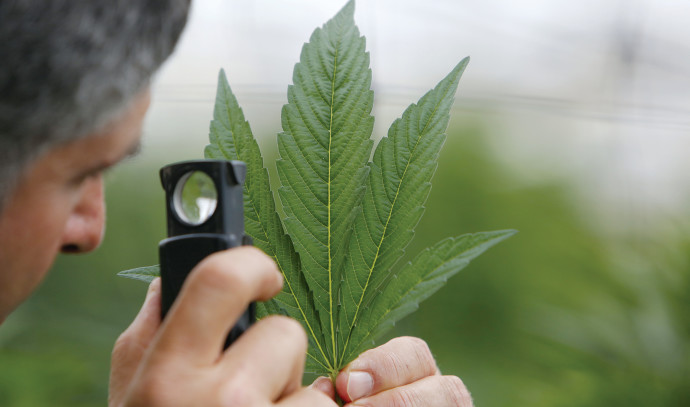As legal users of medical cannabis complain about accessibility and Israeli growers charge that their businesses are dying due to excessive state regulation, the Health Ministry announced on Tuesday another “comprehensive reform” on the issue.
It said that the aim is to reduce regulation significantly, improve supervision of production, and transfer more responsibility to cannabis farmers.
The purpose of the outline is to bring about a significant reduction in the regulation of the industry, improving the manner of supervision and the transfer of responsibility to farmers, along with speeding up research and innovation in the field.
How will Israel’s medicinal cannabis policies change?
There are today some 100,000 Israeli patients with licenses to consume medical cannabis, and most of them suffer from diseases like cancer, Crohn’s, multiple sclerosis, Parkinson’s, dementia, epilepsy, and post-traumatic stress disorder.
The liberalization will grant permission to researchers to issue cannabis prescriptions to research subjects and create a clear procedure to prove the safety and effectiveness of use. Clinical trials for new uses for various types of medical marijuana will be speeded up, and the export process will be simplified.
Restrictions on the treatment of cannabis as a last resort (without the obligation of prior treatment with opiates) will be removed, the ministry said. The extension of users’ medical licenses will be granted upon the recommendation of a doctor in cases where there are bureaucratic delays.
The reform will also redefine “dangerous drugs” and the reference to CBD (cannabidiol, the active ingredient in cannabis derived from the hemp plant). This follows the end of the transition period recommended by the ministry’s Shemer Committee and is subject to the work of the follow-up team led by Dr. Boaz Lev, who examined the possibility of leaving only cannabis with psychoactive components in the “Dangerous Drugs Ordinance” if the concentration of THC (tetrahydrocannabinol, the principal psychoactive constituent of cannabis above 0.3%, starting from February 2024.
Starting in December of this year, there will also be a transition to prescriptions by a specially trained doctor for 10 labels of medical cannabis that were approved in the regulations.
Even most Orthodox and ultra-Orthodox (haredi) Jewish groups – but not Finance Minister Bezalel Smotrich, head of the Religious Zionist Party – have come out for decriminalization and acceptance of medical cannabis, as Halacha allows using anything natural that promotes people’s health.
While some skeptical medical-cannabis users said they doubted the ministry’s reform would make any difference, others said it should be given a chance.



